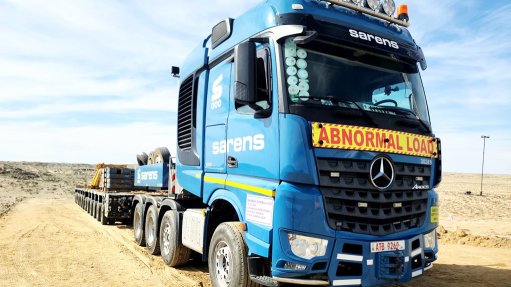STEM the way to go
Conventional wisdom has it that one man’s meat is another man’s poison. But a Ghanaian youngster has proven also that one man’s trash can be another man’s means of mobility – literally.
Nineteen-year-old Kelvin Odartei Cruickshank, a resident of Accra, the capital city, developed a passion for building things when he was quite small, recalling in an interview with the US’s The New York Times that, by age ten, he had “started building prototypes or micromachines such as vacuum cleaners, robots, cars, a helicopter, et cetera”.
Using scrap and other metal parts, owing to his family’s straitened circumstances, he moved on to bigger things and soon built a two-person car that cost $200 and took three years to complete.
“I did not have money. So I had to do labour jobs and go about collecting scrap materials to make the car,” he told The New York Times, explaining that he built the body of the vehicle using motor parts, shipping container panels and iron rods. A motorbike engine powers the car along the streets of his home city.
As The New York Times story highlighted, Cruickshank counts his contraption as a success: “It works just the way I wanted.” His ambition is to educate himself and bring more inventions to reality. And there is a deadline to achieving that aspiration: the next five years.
There could be many more Cruickshanks across the continent if our governments paid sufficient attention to science, technology, engineering and mathematics (STEM) courses. As the United Nations, Educational, Scientific and Cultural Organisation (Unesco) laments, “in a number of countries, particularly in Southern Africa, there is a paucity of courses and curriculum in basic computer sciences, let alone artificial intelligence”.
The African Capacity Building Foundation (ACBF) agrees with Unesco’s view, noting that developing human and institutional capacity in these critical skills has become urgent for Africa.
The foundation is doing its bit in this regard, having worked with the African University of Science and Technology (AUST), in Abuja, Nigeria, to mould the continent’s inventors and technopreneurs of tomorrow. AUST is one of the Nelson Mandela Centres of Excellence in Science and Technology in Africa.
Since 2012, the ACBF has invested more than $3.6-million to boost productivity in research at the Abuja-based university and to sponsor the brightest young minds from across the continent to gain high-level skills in petroleum engineering, material science, pure and applied mathematics, and computer engineering, as well as other skills.
The ACBF sees its endeavours as having the potential to transform the continent. It states: “This is about a revolution which will see Africa producing many of the likes of Professor Christiaan Neethling Barnard, the pioneering heart transplant surgeon, March Arthur Zang, the inventor of the cardiopad, and Innocent Chukwuma, the innovative entrepreneur, to continue honing Africa’s scientific, technological and economic transformation. This will not only be good for Africa but will also be great for the rest of the world.”
African countries should redouble their efforts to empower youngsters with STEM skills. The continent’s population is the world’s youngest, with almost 200-million people aged between 15 and 24. A huge proportion of the population is also under 65, meaning that, if Africa slowed down new births and capitalised on the productivity of this vibrant workforce, there would be rapid growth and development – what experts call the demographic dividend.
Africa, however, is hardly enjoying its demographic dividend, given that youth unemployment is the continent’s number one challenge. What Africa is witnessing at this stage is a youth bulge. ACBF executive secretary Professor Emmanuel Nnadozie warns that, if this is not urgently turned into a democratic dividend, it could become a demographic time-bomb or demographic nightmare. STEM skills will help prevent such an eventuality.
Article Enquiry
Email Article
Save Article
Feedback
To advertise email advertising@creamermedia.co.za or click here
Announcements
What's On
Subscribe to improve your user experience...
Option 1 (equivalent of R125 a month):
Receive a weekly copy of Creamer Media's Engineering News & Mining Weekly magazine
(print copy for those in South Africa and e-magazine for those outside of South Africa)
Receive daily email newsletters
Access to full search results
Access archive of magazine back copies
Access to Projects in Progress
Access to ONE Research Report of your choice in PDF format
Option 2 (equivalent of R375 a month):
All benefits from Option 1
PLUS
Access to Creamer Media's Research Channel Africa for ALL Research Reports, in PDF format, on various industrial and mining sectors
including Electricity; Water; Energy Transition; Hydrogen; Roads, Rail and Ports; Coal; Gold; Platinum; Battery Metals; etc.
Already a subscriber?
Forgotten your password?
Receive weekly copy of Creamer Media's Engineering News & Mining Weekly magazine (print copy for those in South Africa and e-magazine for those outside of South Africa)
➕
Recieve daily email newsletters
➕
Access to full search results
➕
Access archive of magazine back copies
➕
Access to Projects in Progress
➕
Access to ONE Research Report of your choice in PDF format
RESEARCH CHANNEL AFRICA
R4500 (equivalent of R375 a month)
SUBSCRIBEAll benefits from Option 1
➕
Access to Creamer Media's Research Channel Africa for ALL Research Reports on various industrial and mining sectors, in PDF format, including on:
Electricity
➕
Water
➕
Energy Transition
➕
Hydrogen
➕
Roads, Rail and Ports
➕
Coal
➕
Gold
➕
Platinum
➕
Battery Metals
➕
etc.
Receive all benefits from Option 1 or Option 2 delivered to numerous people at your company
➕
Multiple User names and Passwords for simultaneous log-ins
➕
Intranet integration access to all in your organisation

















